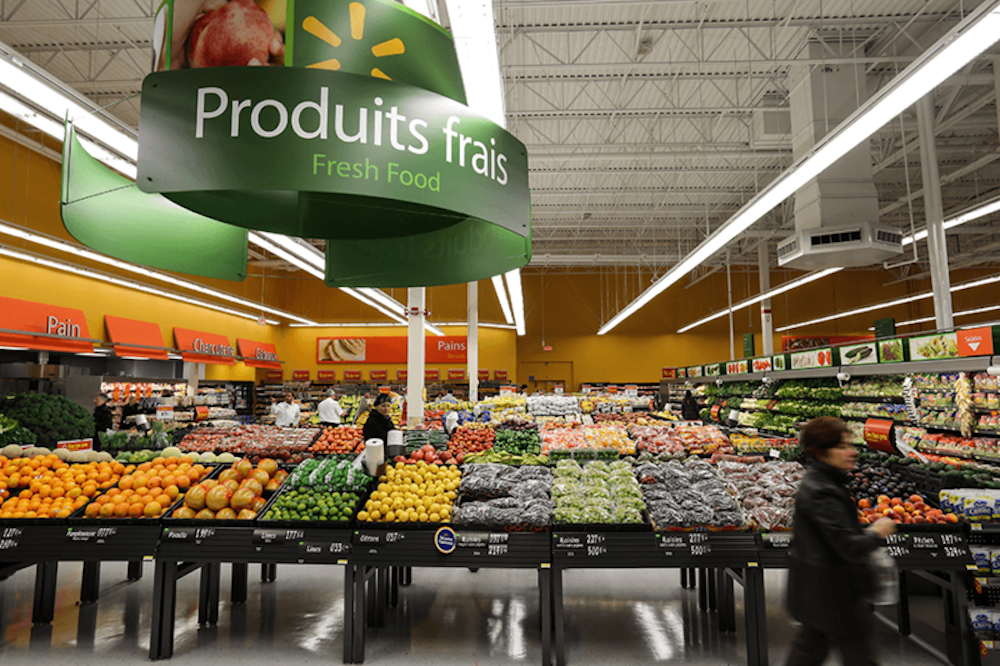No Food Shortages in Sight in Canada but Concerns Remain: Expert
/photo: shutterstock
By Sylvain Charlebois
With the pandemic, access to food has been a source of anxiety everywhere in the West. Panic buying by people in confinement has already demonstrated the fragility of supply chains, as supermarket shelves were emptying in many countries, including Canada. Seeing shelves fill up across the network, most consumers felt reassured. Time and time again, experts have reassured the public that food security will never be compromised, if borders remain open. The worst of the pandemic, though, is yet to come, which means that anything can still happen.
Our global supply chains are working, due to the goodwill of countries wanting to share wealth and knowledge with others. Essentially, trade is based on the principle that no one country can be good and efficient at everything. Being a Nordic country, Canada has certain disadvantages, and its relationships with other partners abroad allow our agri-food economy to fill in some gaps. We buy and sell with the world. It's the same for other countries. Countries depend on each other. It’s a simple theory, and it’s been working for years.
But in times of crisis, such principles can easily be forgotten. Some governments react unpredictably when fear takes over and begins dictating their decisions. Since the beginning of the COVID-19 crisis, every effort has been made to ensure that trade flows as freely as possible, especially to avoid food shortages. This was the crux of the message from the United Nations and several governments around the world, including Canada and the United States.
photo: the packer
The UN has gone so far as to say that when acting to protect the health and well-being of their citizens, countries should ensure that any trade-related measures do not disrupt the food supply chain. But the global agency also had a more provocative message in its press release this week. It mentioned that the world could face a food shortage if the authorities fail to properly manage the COVID-19 epidemic.
For now, keeping markets open without interruption has been the focus. But now that governments around the world are trying to curb the spread of COVID-19 by restricting population movements, international trade and food supply chains are beginning to show signs of slowing down. Agriculture is being affected with the thorny issue of foreign workers, and processing is being disrupted by impromptu factory closings in different places. Trucking, which ensures the connections between links of the chain, is sometimes slowed down by more road surveillance. In short, the entire supply chain is under extreme pressure.
The world is decidedly on the brink of a major slowdown in agrifood trades. Borders are becoming more fragile as we get closer to the peak of this pandemic. The United Nations appropriately called the world to order, which is especially important now. Uncertainty about the availability of food can literally trigger a wave of export restrictions, creating a shortage on world markets. Such a scenario is highly improbable, but not impossible.
photo: medium
For us, the United States is the wild card. The number of positive COVID-19 cases in the US is alarming, as are the number of deaths. What’s adding more pressure is the 10 million Americans who have lost their jobs in the past two weeks. 10 million, in two weeks. Considering the size of our own economy, the situation in Canada is slightly worse. These are unprecedented numbers. These numbers are very, very alarming.
And unfortunately, we all know how fear can influence governments, especially in the US. You only need look at the wall erected on the American-Mexican border. According to a recent survey by Angus Reid, a total of 71% of Canadians are either concerned or extremely concerned about the Canadian economy. When a crisis hits, populations tend to stay close to what’s familiar, which is why the buying local movement is getting a little bit of a lift these days. In fact, according to the same survey, 43% of Canadians intend to buy locally once the crisis is over. It’s always nice to buy local and support our own economy, but we all need to think about the big picture. More than 60% of the Canadian economy stems from exports.
Things are already getting complicated across the planet. Russia has issued a government decree establishing an export quota for certain grains until the end of June as its virus cases escalate. The correlation between the number of COVID-19 cases identified and the nervousness of governments is strong. Let’s hope cooler heads prevail in North America.
Dr. Sylvain Charlebois is Dean of the Faculty of Management at Dalhousie University in Halifax. Also at Dalhousie, he is Professor in food distribution and policy in the Faculty of Agriculture. His current research interest lies in the broad area of food distribution, security and safety, and has published four books and many peer-reviewed journal articles in several publications. His research has been featured in a number of newspapers, including The Economist, the New York Times, the Boston Globe, the Wall Street Journal, Foreign Affairs, the Globe & Mail, the National Post and the Toronto Star. Follow him on twitter @scharleb.











![Retail-insider-NRIG-banner-300-x-300-V01-3[2].jpg](https://images.squarespace-cdn.com/content/v1/529fc0c0e4b088b079c3fb6d/1593476525034-QRWBY8JUPUYFUKJD2X9Z/Retail-insider-NRIG-banner-300-x-300-V01-3%5B2%5D.jpg)
![Retail-insider-NRIG-banner-300-x-300-V01-2[2].jpg](https://images.squarespace-cdn.com/content/v1/529fc0c0e4b088b079c3fb6d/1593476491497-W6OZKVGCJATXESC9EZ0O/Retail-insider-NRIG-banner-300-x-300-V01-2%5B2%5D.jpg)
![Retail-insider-NRIG-banner-300-x-300-V01-4[2].jpg](https://images.squarespace-cdn.com/content/v1/529fc0c0e4b088b079c3fb6d/1593476508900-TJG5SNQ294YNOCK6X8OW/Retail-insider-NRIG-banner-300-x-300-V01-4%5B2%5D.jpg)
Sylvain Charlebois says that a code of practice is required to save the industry, and if nothing is done the consumer will also suffer.